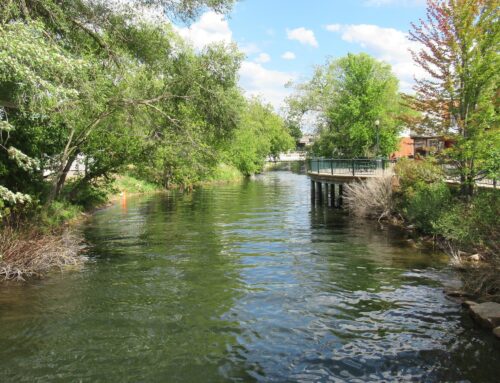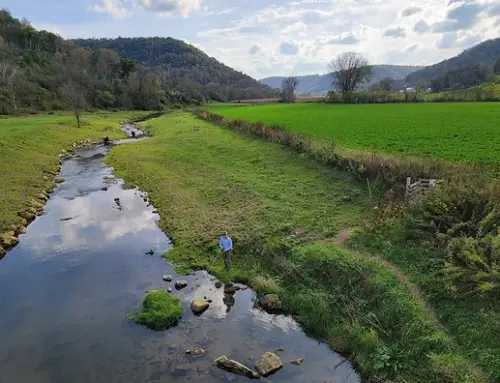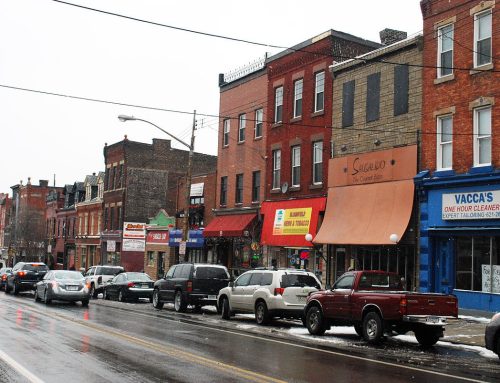By Richard Hague
Each time I come back home
something else has burned.
The abandoned Pennsylvania station—
where years ago I stood in fog
and listened for the train
to Washington, D.C.
and later, in the sooty afternoons,
laid pennies on the rails
for mainline freights
to flatten thin as knife-blades—
that station was the first to go.
Black smoke charred a hundred
slag-gray pigeons;
scorched rats ran downtown
toward the river.
Across the street, in Pug’s Hotel,
a dozen winos rubbed their eyes
and chucked their old timetables.
Then Pug’s Hotel itself,
where a group of Harvard scholars stayed,
come to study smoke and smoke’s effects.
Their files and Cambridge pinstripes
made good kindling.
Then, a warehouse
down on Fifth Street.
Ten football fields of carpets
unrolled into flame,
and up and down the street,
firemen hosed the smoking homes of
out-of-town Italians.
Then, a lumberyard,
a pharmacy, a bingo hall.
The sidewalks buckled,
women wandered in the alleys
toward the Holy Name Cathedral.
No arrests were made.
In Steubenville,
fire—in one form or another,
whether open hearth, arc-welder,
the bitter smolder of old mines—
pays its million-dollar bribes.
Fire, that bright-faced hit man of good steel,
that roaring goon of coal,
has bought off all the cops,
and keeps the mayor
gagged and sweating
in his office.
In the meantime,
my city that has fed on fire so long
is now itself fire’s feeding.
At night, downtown,
I clamber over cinders and split boards,
calling names against the darkness,
listening for echoes
from walls no longer there.
Ash swirls overhead like bats.
In a hundred smoky South End rooms,
Polish women
start awake
to mill-scream, sirens,
the cries of fire-haired girls,
and men lob dynamite
into their own homes
from the streets. ■
.
Richard Hague is a native of Steubenville, Ohio. He is the author of Studied Days: Poems Early & Late in Appalachia (Dos Madres Press, 2018), and the winner of the 2003 Poetry Book of the Year from the Appalachian Writers Association for Alive on Hard Country (Bottom Dog Press, 2003). He is currently artist-in-residence at Thomas More University in northern Kentucky.
Cover image by Don O’Brien (creative commons).
Belt Magazine is a 501(c)(3) nonprofit organization. To support more independent writing and journalism made by and for the Rust Belt and greater Midwest, make a donation to Belt Magazine, or become a member starting at $5 per month.






